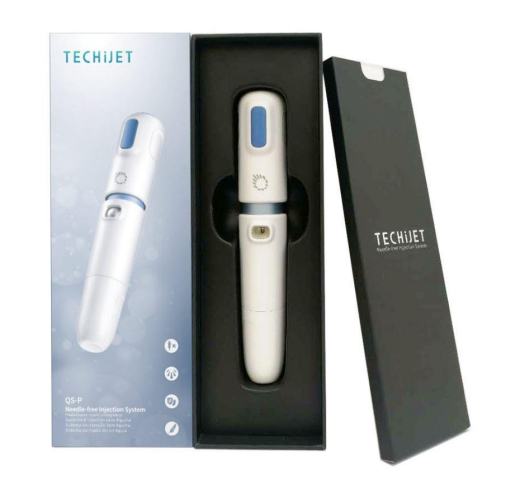Introduction
The needle-free injector is a groundbreaking advancement in medical technology that promises to transform how we administer medications and vaccines. This innovative device eliminates the need for traditional hypodermic needles, providing a safer, more efficient, and less painful method for delivering medications. As the global healthcare landscape evolves, the importance of needle-free injectors becomes increasingly apparent, offering significant benefits in terms of patient comfort, safety, and overall healthcare efficacy
Enhancing Patient Comfort and Compliance
One of the most immediate benefits of needle-free injectors is the enhanced comfort they provide to patients. Needle phobia is a well documented phenomenon, affecting a significant portion of the population. This fear can lead to avoidance of necessary medical treatments, including vaccinations, which can have serious public health implications. Needle-free injectors alleviate this anxiety by eliminating the use of needles, making the injection process virtually painless. This can lead to increased patient compliance with treatment regimens and vaccination schedules, ultimately improving health outcomes.

Improving Safety and Reducing Needlestick Injuries
Needlestick injuries are a significant concern for healthcare workers, with the World Health Organization (WHO) estimating that millions of such injuries occur annually, leading to potential transmission of bloodborne pathogens such as HIV, hepatitis B, and hepatitis C. Needle-free injectors significantly reduce this risk by eliminating the needle, thereby protecting healthcare workers from accidental needlestick injuries. This not only enhances the safety of medical professionals but also reduces the associated healthcare costs and emotional distress
Enhancing Drug Delivery and Absorption
Needle-free injectors utilize advanced technologies to deliver medications through the skin without puncturing it. Methods such as jet injection use high-pressure streams of liquid to penetrate the skin and deliver the drug directly into the tissue. This can enhance the absorption and bioavailability of medications, ensuring that patients receive the full therapeutic benefit of their treatments. Additionally, needle-free technology can be particularly advantageous for administering vaccines, as it can ensure a more consistent and reliable delivery.
Facilitating Mass Vaccination Campaigns
In the context of global health, needle-free injectors have shown great promise in facilitating mass vaccination campaigns. Their ease of use and rapid administration process make them ideal for large-scale immunization efforts, particularly in developing countries where healthcare resources may be limited. Furthermore, because needle-free injectors do not require sharp disposal, they reduce the burden of medical waste management, making them more environmentally friendly and cost-effective for widespread use. Broadening Access to Medical CareNeedle-free injectors can also play a crucial role in expanding access to medical care, particularly in remote or underserved areas. These devices are often portable and easy to use, allowing for greater flexibility in delivering care outside traditional healthcare settings. Community health workers and volunteers can use needle-free injectors to administer vaccines and medications in rural or hard-to-reach locations, thus broadening the reach of healthcare services and improving public health outcomes.
Encouraging Innovation in Drug Development
The rise of needle-free technology is also encouraging pharmaceutical companies to innovate and develop new formulations of drugs that are compatible with these devices. This can lead to the creation of more advanced and effective treatments, tailored for needle-free delivery. As the technology continues to evolve, we can expect to see a broader range of medications becoming available in needle-free formats, further enhancing the overall efficiency and effectiveness of medical treatments.
Conclusion
The importance of needle-free injectors in modern medicine cannot be overstated. By enhancing patient comfort, improving safety, facilitating better drug delivery, and broadening access to healthcare, these devices represent a significant advancement in medical technology. As we continue to face global health challenges, the adoption of needle-free injectors will be crucial in ensuring that medical care is safe, effective, and accessible to all. The ongoing innovation and development in this field hold great promise for the future of healthcare, offering new possibilities for the administration of medications and vaccines worldwide.
Post time: May-20-2024
